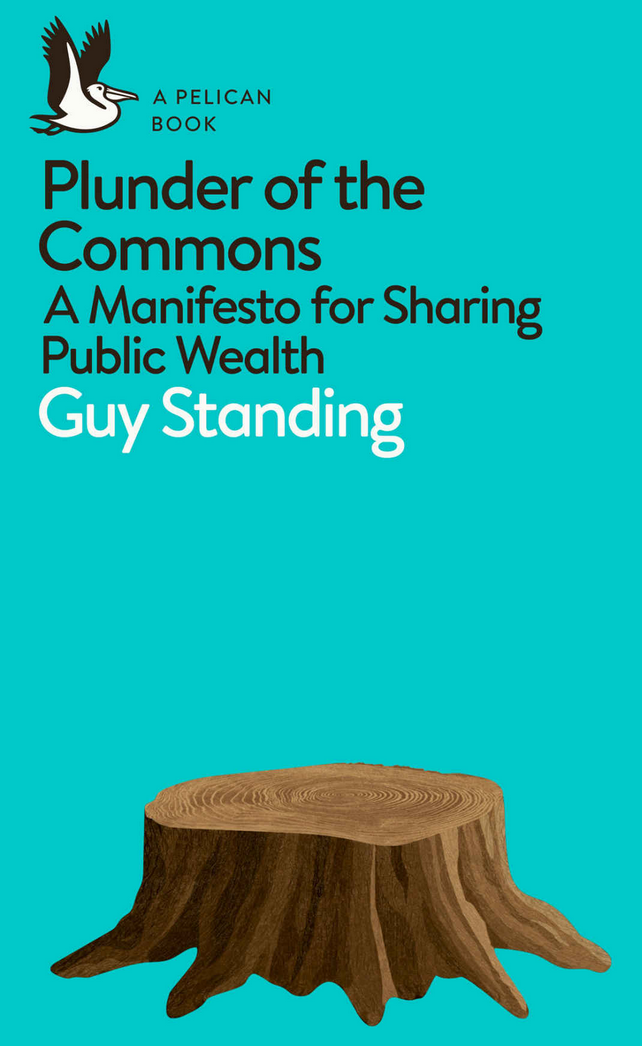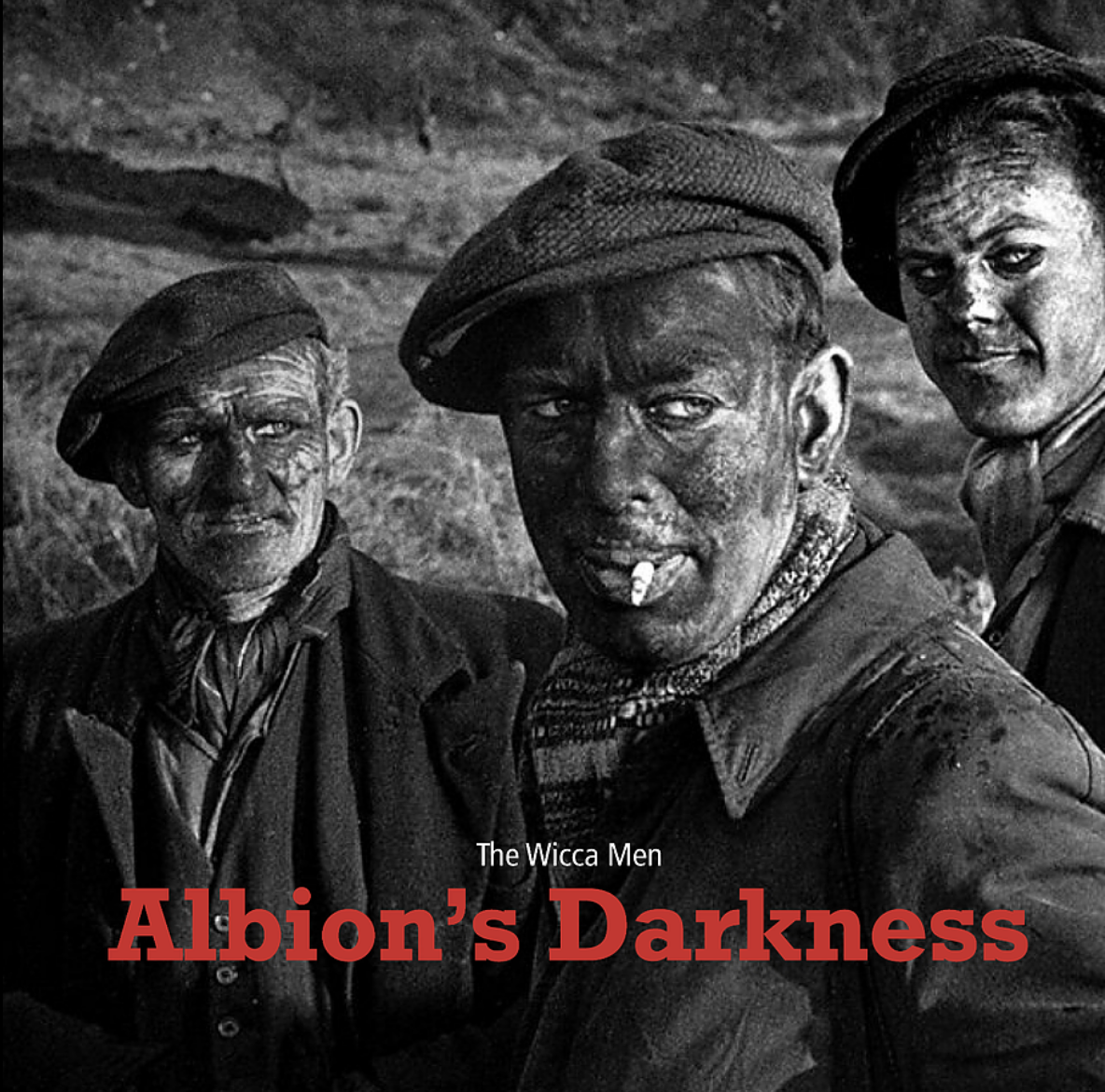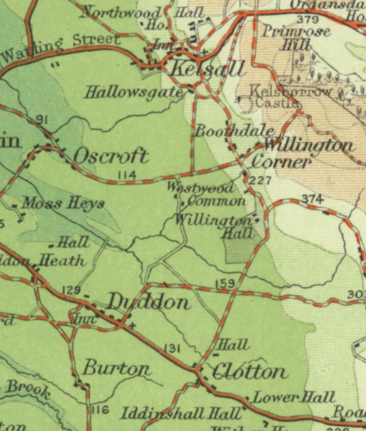Guy Standing’s ‘Plunder of the Commons’
Here are two nice bookends for understanding British politics over the past eight centuries: The Charter of the Forest at one end, which from 1215 (until 1971!) guaranteed commoners the right to access to their common wealth for subsistence. And at the other end, British Prime Minister Margaret Thatcher, who in 1981 ushered in a draconian regime of neoliberal capitalism that has eliminated those rights by stealing and privatizing common wealth.
In his recent book, Plunder of the Commons: A Manifesto for Sharing Public Wealth, Guy Standing, an economist at SOAS in London, brings together both end-points of this history. The focus is on enclosures, but the point of the book, its manifesto, is to reclaim the commons, chiefly understood, in this context, as public assets and services.
 The commons has had a recurring role in the “deep history” of the United Kingdom, but generally it has been treated as something over and done with. It is not generally regarded as a timely political issue that affects everyone. A big salute, then, to Standing for finally providing us with a full-bodied treatment of British commons in both their grand historical sweep and their importance in contemporary politics. He has synthesized so many diverse strands that have made (and unmade) the commons over the centuries – law, land, property rights, economics, culture, knowledge. It all helps illuminate how vital commons are to a fair, well-functioning society.
The commons has had a recurring role in the “deep history” of the United Kingdom, but generally it has been treated as something over and done with. It is not generally regarded as a timely political issue that affects everyone. A big salute, then, to Standing for finally providing us with a full-bodied treatment of British commons in both their grand historical sweep and their importance in contemporary politics. He has synthesized so many diverse strands that have made (and unmade) the commons over the centuries – law, land, property rights, economics, culture, knowledge. It all helps illuminate how vital commons are to a fair, well-functioning society.
Appropriately, Standing begins his account with a chapter on the Charter of the Forest, the first legal guarantee of commoners' right to subsistence. Standing’s history of the Charter of the Forest is surely one of the most succinct and vivid that I’ve read of this near-forgotten portion of the Magna Carta. The account is not a dry history of strange people who lived a long time ago; it’s a compelling account of the first instances of many patterns of law, human rights, and political struggle that define our politics today.
Standing writes:
“To a certain extent, the Charter can be regarded as an outcome of the first class-based set of demands on the state made by, and on behalf of, the common man (and woman), asserting the common or customary rights of ‘freemen.’…It was a truly radical document, guaranteeing freemen the right to the means of subsistence, the right to raw materials, and to a limited but substantive extent, a right to the means of production.”
- Read more about Guy Standing’s ‘Plunder of the Commons’
- Log in or register to post comments

 British songwriter and musician Adrian Renton decided it was time to confront the outrages of our time by resurrecting a classic form – folk protest music. Inspired by a 1960s album, “Moving On,” by Scottish musician Nigel Denver, Renton pulled together some friends from Essex, Berkshire and London to re-record some very old English songs. They also wrote some new songs in the same spirit of protest.
British songwriter and musician Adrian Renton decided it was time to confront the outrages of our time by resurrecting a classic form – folk protest music. Inspired by a 1960s album, “Moving On,” by Scottish musician Nigel Denver, Renton pulled together some friends from Essex, Berkshire and London to re-record some very old English songs. They also wrote some new songs in the same spirit of protest. 
 y – assembled for an access rally in the Winnats Pass, near Castleton, and the pressure for greater access continued to grow.
y – assembled for an access rally in the Winnats Pass, near Castleton, and the pressure for greater access continued to grow.
 The right to create money and profit from it is known as seignorage. Banks currently enjoy this right and exercise it through their lending, which creates most of the money in circulation. Governments have effectively let banks privatize control of the money supply. In so doing, governments have forfeited the opportunity to provide debt-free lending to support productive enterprises and public needs as opposed to fueling boom-and-bust speculation and relentless economic growth that destroys the environment.
The right to create money and profit from it is known as seignorage. Banks currently enjoy this right and exercise it through their lending, which creates most of the money in circulation. Governments have effectively let banks privatize control of the money supply. In so doing, governments have forfeited the opportunity to provide debt-free lending to support productive enterprises and public needs as opposed to fueling boom-and-bust speculation and relentless economic growth that destroys the environment.
 become once more a ‘common treasury for all’. Change was to be brought about by the poor working the land in common and refusing to work for hire. The common people had ‘by their labours … lifted up their landlords and others to rule in tyranny and oppression over them’, and, Winstanley insisted, ‘so long as such are rulers as calls the land theirs … the common people shall never have their liberty; nor the land ever freed from troubles, oppressions and complainings’. The earth was made ‘to preserve all her children’, and not to ‘preserve a few covetous, proud men to live at ease, and for them to bag and barn up the treasures of the earth from others, that they might beg or starve in a fruitful land’ – everyone should be able to ‘live upon the increase of the earth comfortably’. Soon all people – rich as well as poor – would, Winstanley hoped, be persuaded to throw in their lot with the Diggers and work to create a new, and better society. To Winstanley, agency was key, for ‘action is the life of all and if thou dost not act, thou dost nothing’.
become once more a ‘common treasury for all’. Change was to be brought about by the poor working the land in common and refusing to work for hire. The common people had ‘by their labours … lifted up their landlords and others to rule in tyranny and oppression over them’, and, Winstanley insisted, ‘so long as such are rulers as calls the land theirs … the common people shall never have their liberty; nor the land ever freed from troubles, oppressions and complainings’. The earth was made ‘to preserve all her children’, and not to ‘preserve a few covetous, proud men to live at ease, and for them to bag and barn up the treasures of the earth from others, that they might beg or starve in a fruitful land’ – everyone should be able to ‘live upon the increase of the earth comfortably’. Soon all people – rich as well as poor – would, Winstanley hoped, be persuaded to throw in their lot with the Diggers and work to create a new, and better society. To Winstanley, agency was key, for ‘action is the life of all and if thou dost not act, thou dost nothing’. w the Games™ seem more of an excuse for corporate branding and image-polishing than something that belongs to the athletes themselves or to Londoners.
w the Games™ seem more of an excuse for corporate branding and image-polishing than something that belongs to the athletes themselves or to Londoners.









Recent comments